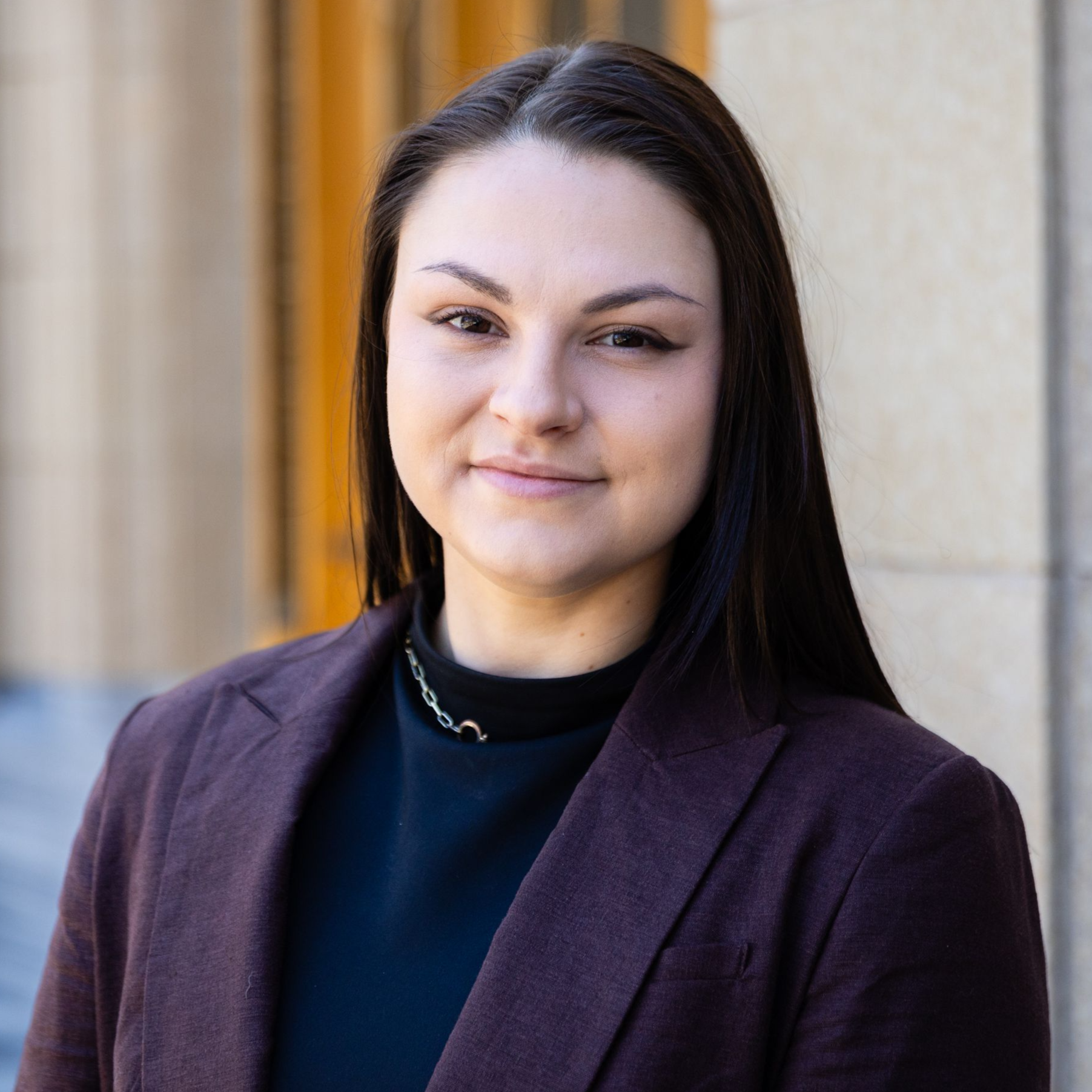Meet the democratic socialist elected to Atlanta City Council

Atlanta City Council will soon include the first democratic socialist ever elected to the legislative body.
Kelsea Bond, a 32-year-old Midtown resident, won by a landslide in a crowded race to fill the Atlanta City Council District 2 seat that became open when Amir Farokhi resigned from the position earlier this year.
Bond — who uses “they/them” pronouns — is a progressive organizer with a history of advocating for workers’ rights, access to reproductive care, racial justice and LGBTQ+ rights. Bond also helped lead the state house campaign for democratic socialist Gabriel Sanchez, who ousted an incumbent for a Smyrna seat in the Georgia House of Representatives in 2024.
Voters in the Midtown, Old Fourth Ward, Inman Park, Poncey-Highland and Virginia-Highland neighborhoods overwhelmingly backed Bond, who won 64% of ballots cast — more than triple the percentage of votes for the nearest opponent in the race.
There were only two other district races on the ballot without an incumbent — Districts 7 and 11. Both are going to runoffs.
Bond’s win means a new progressive voice on Atlanta City Council with the potential to emerge as one of Atlanta Mayor Andre Dickens’ most vocal critics on a body that rarely pushes back against the mayor publicly.
Bond said it’s clear they fall on opposite sides of debate on issues like the city’s public safety training facility and voiced concerns about the mayor’s recent proposal to expand Atlanta’s eight tax allocation districts.
“But at the same time, I really appreciate that the mayor has prioritized affordable housing as a main initiative,” Bond said. “I’m open to see where our values align and what we can work on collaboratively.”
The City Council member-elect will undoubtedly face the obstacle of rallying their more centrist and conservative Democratic colleagues around progressive legislation. But Bond pointed to their support from unions and community organizations as a tool to leverage support.
“We have hundreds of people that can mobilize at City Hall and speak during public comments and let it be known that they support this or that issue,” Bond said. “I think this will be a really interesting chapter of Atlanta politics.”
More than 200 volunteers knocked on about 35,000 doors for Bond during the election season, according to the campaign. Bond also outraised all the other candidates in the race — reaching $247,000 — without corporate or developer contributions.
On the campaign trail, Bond strongly supported Beltline rail, tying transit expansion to climate issues. Bond advocated for more dense affordable housing; strengthening worker’s rights; expanding community-based jail diversion services and increasing input from residents on policy decisions.
Bond’s victory is also a win for progressive political organizations that have struggled to see success in Atlanta, but have reason to celebrate after major wins across the country like Zohran Mamdani’s victory in the New York mayoral race.
“It’s not just in Atlanta where there is this need or this desire for a new, bolder kind of politics,” said Matthew Nursey, co-chair of the Atlanta chapter of Democratic Socialists of America. “This is bigger than just one campaign — this is a movement that we’re building.”
Bond served in a leadership position in the Atlanta DSA chapter.
“People like Kelsea have been putting in that work for a really long time, and now it’s starting to bear fruit — that was really proven (on Election Day),” Nursey said.

In an interview with The Atlanta Journal-Constitution, Bond said city voters and those across the country are becoming increasingly familiar with, and supportive of, democratic socialist candidates.
“I explain democratic socialism as the extension of democracy and all spheres of life,” Bond said. “More democracy in our electoral system, getting corporate money out of politics, protecting union rights ... and, of course, democracy in our own communities and neighborhoods, as well.”
District 2 is a hotbed for development that also brings concerns for legacy residents who face increasing housing costs and bottleneck traffic coupled with a lack of reliable transit options.
Bond said their loud support for Beltline rail helped push them across the finish line ahead of the other candidates in the race — particularly among young voters.
“This is at once a climate issue; it’s an affordability and mobility issue,” Bond said. “It’s also a democracy issue, because we did vote on the More Marta referendum in 2016.
“We decided early on in this campaign that we were going to stand up and champion Beltline rail and not shy away from it.”
Bond said they plan to push for light rail along the entire 22-mile loop despite Mayor Dickens’ recently announced plans to install the transit system along the southside trail.

The new council cohort — the vast majority are returning incumbents — face big challenges as the city prepares for 2026 FIFA World Cup activities next summer. That’s particularly true in downtown and Midtown, where tens of thousands of visitors are expected to take over city streets.
City officials drafted a sweeping plan dubbed “Downtown Rising,” that outlines steps toward a “North Star” goal of eliminating homelessness in the downtown area before the first World Cup game.
Bond supports focusing on a housing-first approach and support services for unhoused Atlantans ahead of the event.
“I do want to make sure that we are prioritizing the safety of our houseless neighbors and not repeating the mistakes the city made during the Olympics, where we essentially criminalized homelessness,” Bond said.
Bond’s campaign also centered heavily on cost of living, as decisions at the federal level have driven up prices, and the government shutdown has paused critical food assistance programs like SNAP. All while Atlanta continues to grow and legacy residents find it harder to stay in their homes.
“Much of the housing that’s being built right now is for those newer, higher income folks,” Bond said. “I think that housing affordability and density should be a priority for the next four years and years to come.”


